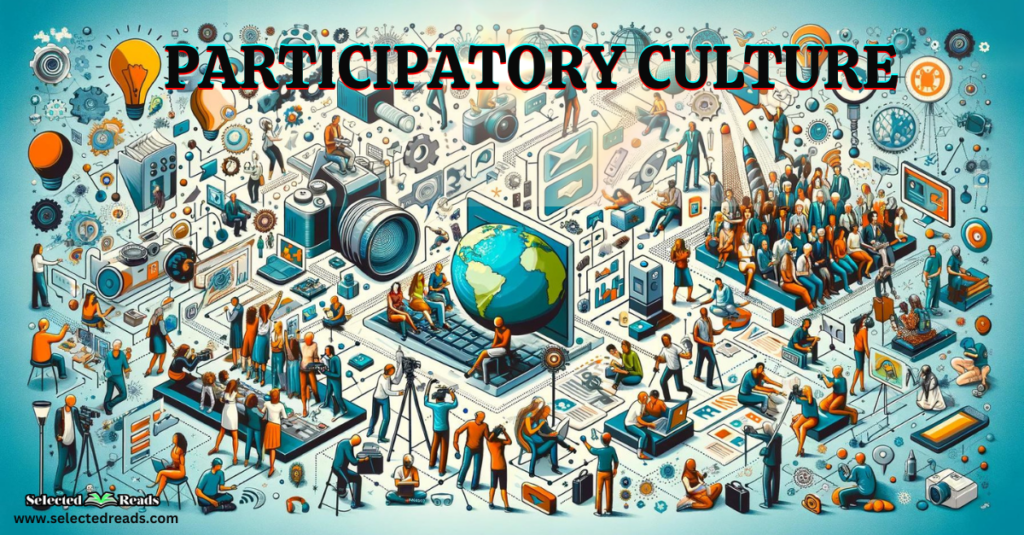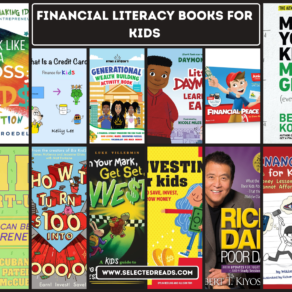I was introduced to Henry Jenkins’ work by my MAEd supervisor at the time, Andrew Manning. Dr Manning shared with me Jenkin’s book Participatory Culture in a Networked Era and encouraged me to read it which I did. A couple of years later Jenkin’s concept of participatory culture made it to my Master thesis and since then I have read several of his works.
Mr Jenkin’ s insights in the area of emerging technologies and media theory have immensely shaped my own views regarding our interaction with these technologies. If you are doing or planning to do research on a topic related to media literacy, media theory, or emerging technologies, Mr Jenkin’s work is a must read.
What is participatory culture?
Participatory culture represents a transformative shift in how we create, consume, and share content, fundamentally reshaped by the digital age. Here is a simple analogy to explain the core of the concept of participatory culture:
Imagine you and your friends are playing with a big box of colorful building blocks. You start building a castle together, each of you adding your own special blocks to make it bigger and cooler. Sometimes, you show your castle to other kids and invite them to add their blocks too. Everyone gets to decide what part they want to build, and together, you create something amazing that no one could have made all by themselves.
Participatory culture is a lot like playing with those blocks. It’s when everyone helps to create stories, pictures, or games on the internet, sharing their ideas and making something special that everyone can enjoy. It’s like a big, worldwide game where everyone can play and add their own piece to the puzzle.
Henry Jenkins, through his extensive body of work, has been pivotal in defining this concept. At the heart of participatory culture is the collaborative and interactive nature of modern technology, particularly the internet and new media platforms, which empower individuals to produce and disseminate content without the traditional gatekeeping mechanisms that once controlled information flow.
This culture thrives on the principles of collaboration and sharing, where user-generated content—crafted by people from various corners of the globe—forms the backbone of online spaces. It’s a realm where creativity flourishes, communities form around shared interests, and knowledge is collectively constructed and circulated. In this ecosystem, individuals are not mere consumers but active participants who contribute their skills and creativity, fostering an environment rich in dialogue, innovation, and cultural production.
For those intrigued by the depths and dynamics of participatory culture and how Henry Jenkins has conceptualized it amid the evolving media landscape, diving into his series of insightful books offers a comprehensive exploration of this contemporary cultural phenomenon.
1. Participatory Culture in a Networked Era: A Conversation on Youth, Learning, Commerce, and Politics, by Henry Jenkins, Mizuko Ito, danah boyd
“Participatory Culture” is a collective exploration by Jenkins, Ito, and boyd into the transformative effects of emerging technologies on our personal and professional lives. This work emphasizes the social and cultural contexts that shape participatory culture, charting its evolution from a niche to a mainstream phenomenon. The authors champion a collaborative ethos of “doing it together” alongside “doing it yourself,” reflecting on the diversification and integration of participatory practices in modern society.
2. Convergence Culture: Where Old and New Media Collide, by Henry Jenkins
“Convergence Culture” delves into the seismic shifts in media and technology that are reshaping our way of life. Jenkins navigates through legal, industrial, economic, and cultural perspectives to uncover the implications of media convergence. This book is crucial for those seeking to grasp the nuances of our changing cultural landscape and the future trajectory of media practices.
3. Spreadable Media: Creating Value and Meaning in a Networked Culture, by Henry Jenkins, Sam Ford , Joshua Green
“Spreadable Media” examines the revolution in media production and consumption ushered in by the advent of web technologies, emphasizing the decline of corporate control and the rise of participatory culture. The authors dissect the concept of virality, contrasting “stickiness” – concentrating attention in specific locales – with “spreadability” – disseminating content through vast, both formal and informal, networks. This analysis challenges traditional notions of media engagement and distribution.
4. Textual Poachers: Television Fans and Participatory Culture, by Henry Jenkins
“Textual Poachers” revisits Jenkins’s seminal work on fan cultures, supplemented by a reflective interview with Suzanne Scott and a study guide by Louisa Stein. This enhanced edition engages with the evolution of fan studies, offering insights into fans’ relationships with consumer capitalism, genre, gender, sexuality, and more. It remains a pivotal text for understanding the dynamics of fan engagement and its cultural implications.
5. Fans, Bloggers, and Gamers: Exploring Participatory Culture, by Henry Jenkins
This compilation by Jenkins synthesizes over a decade of pioneering research into the media consumption habits of fans, bloggers, and gamers. Starting with an overview of fan studies, the volume explores the rise of participatory culture on the web, the influential role of blogging in media, and debates over public policy and intellectual property. It defends the participatory practices of various communities against marginalization and stigmatization, charting the significant impact of consumer participation on mainstream media.
Final thoughts
The essence of participatory culture, as Jenkins outlines, is transformative, inviting everyone into a creative and collaborative process akin to building a magnificent castle out of blocks with friends. It’s a dynamic where each individual’s contribution is valued, leading to collective masterpieces that reflect the diversity and creativity of its creators. This culture demolishes traditional barriers, encouraging a shared ownership and democratization of content production that enriches our digital and real-world communities.
Jenkins’ works, from “Participatory Culture in a Networked Era” to “Fans, Bloggers, and Gamers,” offer a comprehensive deep dive into the nuances of digital culture and its implications for learning, commerce, politics, and personal expression. Each book peels back another layer of the complex relationship between technology and society, revealing the powerful role of media in shaping our collective future.











